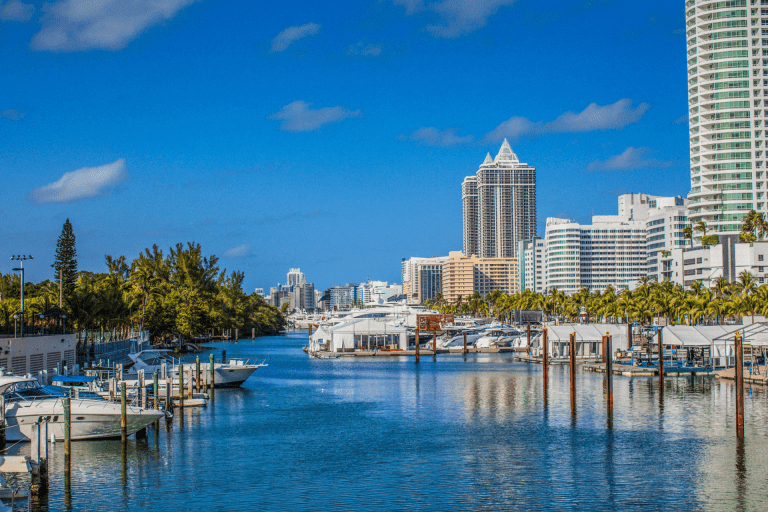The United States Patent and Trademark Office (USPTO) defines the term “trademark” as a word, phrase, symbol, and/or design that serves to identify and distinguish the source of the goods of one party from those of others.
In this article, you will find out feasible ways to respond to a trademark objection in Florida.
How to File a Trademark Opposition – The Basics
The process of trademark opposition happens at the level of the Trademark Trial and Appeal Board (TTAB), which is an arm of the United States Patent and Trademark Office (USPTO).
It is fundamental to note that it is not the role of the Trademark Trial and Appeal Board to consider any damages that may be associated with a trademark infringement. Instead, their role is to establish the merits and legitimacy of a trademark application to either grant or deny its registration.
To file a trademark opposition with the TTAB, you must file a Notice of Opposition, which is a document stating both the reason(s) and the legitimate grounds to file the opposition.
Usually, the applicant has 40 days to respond to the opposition. After receiving the applicant’s response, the TTAB will provide both parties with a set of scheduled dates for each stage of the opposition proceeding.
How to Respond to a Trademark Opposition Proceeding
Similar to bona fide lawsuits filed in federal court, trademark opposition proceedings available under the jurisdiction of the TTAB involve motions, discovery, and trial(s).
The purpose of the Trademark Trial and Appeal Board is to decide whether or not a trademark application deserves an official registration in the USPTO.
Once the UPSTO grants preliminary approval of a trademark, they publish the applicant’s trademark in the Official Gazette for a 30-day period, allowing any individual or company to oppose the registration of the mark.
In this sense, opposers must demonstrate they have a legitimate interest in the case, as well as a substantive argument. When responding to a trademark objection, you must make sure to defend against an opposer on these two fronts.
Undoubtedly, it may be a costly and time-demanding process, so make sure to seek guidance with an expert trademark attorney in Florida.
Responding to a Trademark Opposition in Florida – Key Elements
Filing a Formal Answer with the USPTO
When there is a process of trademark opposition in course, the Trademark Trial and Appeal Board is responsible for setting the relevant dates for each party. Typically, the defendant (in this case, you) has 40 days to file a formal answer, counting the date of the filing of the Notice of Opposition.
Occasionally, it may be possible to obtain an extension of time to file a formal answer if you demonstrate to have a good cause, which requires the guidance of an expert attorney.
When the defendant does not respond to a Notice of Opposition or any other required information, the TTAB will probably send a Notice of Default, meaning that they issued a ruling favorable to the opposing party due to the lack of a formal answer.
Default judgments are binding against future trademark applications, so pay attention to the deadlines established by the TTAB.
Double-Checking the Complaint
When filing the formal answer to the opposing party, you must sit down with your trademark attorney and read the complaint very carefully. Therefore, make an in-depth assessment of the complaint’s strength and the opposing party’s chances to prevail against you.
At this point, it is fundamental to know how to respond to any substantive arguments used by the opposing party to question your application. The ideal approach is to have your legal advisor assessing the complaint to determine whether or not it is worth pushing forward to proceed with a formal answer.
Submitting an Answer to the Complaint
After preparing the paperwork with your trademark attorney, it is time to submit the formal answer to the TTAB. Make sure to submit a document that meets the parameters of the TTAB, and addresses all the substantive arguments laid down in the complaint.
Responding to a trademark objection is part of a litigation process, to make sure to meet all required formalities. Interestingly, there are no strict structural rules you need to follow to draft a proper response, although it is essential to follow some best practices.
Ultimately, the best approach is to rely on an expert trademark attorney to prepare the document on your behalf to ensure full compliance.
How Do You Respond to a Trademark Objection in Florida? – Work with an Expert Trademark Attorney from Jurado and Associates, P.A.
Waste no time with uncertainty. Call Attorney Romy B. Jurado today at (305) 921-0976 or send an email at [email protected] to schedule a consultation as soon as possible.






